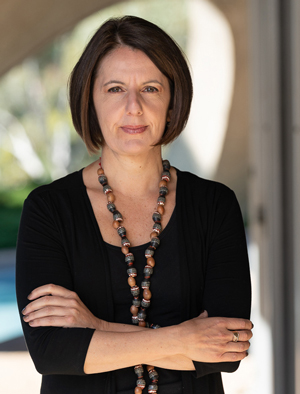
Julian Worricke: With American researchers and students looking at leaving the country to study abroad, there are a whole host of international higher education centres who are desperate to entice them. This week the Australian Academy of Science, for example, announced it was launching a Global Talent Attraction Program and said the government needed to act swiftly to attract the smartest minds leaving the United States. Shortly I will speak to the head of the Australian Academy of Science about that ambition and how they will compete in a global market.
Anna-Maria Arabia: We’ve launched a Global Talent Attraction Program to respond to what we’re seeing as many very talented scientists and technologists who have perhaps lost their jobs or who are feeling disenchanted, and to bring their excellence and expertise to Australia so that they can contribute to the Australian context. We have seen time and time again the benefits of bringing expertise and scientists who are committed to their fields to Australia. They’re able to seed talent, create jobs and really nurture the next generation. So, we're looking at attracting talented people to Australia, but we know we have to act swiftly.
Julian Worricke: I’m also aware that a lot of other countries are also doing the same thing just now.
Anna-Maria Arabia: Indeed, and we’re not the only ones to have identified this opportunity and that’s the very reason we do need to act quickly. There are many talented people across the United States, some of whom unfortunately may be facing very uncertain times. Countries around the world, both at a national level, sometimes at a continent level and institutionally are starting to establish programs to enable them to attract talent to their shores. We feel Australia can benefit and so we’ve moved to act very swiftly to capture that benefit.
Julian Worricke: Are there any particular areas of science where you’d most like to attract people?
Anna-Maria Arabia: We are both institutionally and discipline agnostic at the Australian Academy of Science. By which I mean we’re able to look at any discipline. We know that when you bring excellence to your scientific endeavour it breeds results; it leads to innovations that are unheard of or unthought of at the time of that discovery science. However, there is a case to be made at looking at national need and looking at areas where we may have capability gaps. The Australian Academy of Science has undertaken a number of studies in this area. So, looking at the potential pool of candidates who may wish to come here, there may be an opportunity to fill those gaps as a priority.
Julian Worricke: You launched this Global Talent Attraction Program as of Thursday and you warned the nation needed to act swiftly. So, what kind of timeframe do you have in your mind here?
Anna-Maria Arabia: We’ve established the program and done some modelling around the sort of relocation package that would be required to attract people to Australia. We’ve also surveyed the Fellows of the Australian Academy of Science, who collaborate with their counterparts across the world including in the United States. So, through them we have been able to gain a clearer picture on the sort of demand there is for relocation. We feel this will take time. You don’t just pack up your bags and leave immediately. But certainly, we’re willing to work with candidates who may be inclined to move. I think one of the things we need to remember about scientists worldwide is that they are driven by curiosity. They are driven by discovery. You can’t just turn research on and off and I think it’s that desire to continue their work for the global good that will drive people to want to continue in a nurturing environment. We hope Australia might be a destination that they would consider.
Julian Worricke: Well, thank you very much for coming on the program. Interesting to hear that perspective on all of this. That’s Anna-Maria Arabia, Chief Executive of the Australian Academy of Science.
© 2025 Australian Academy of Science